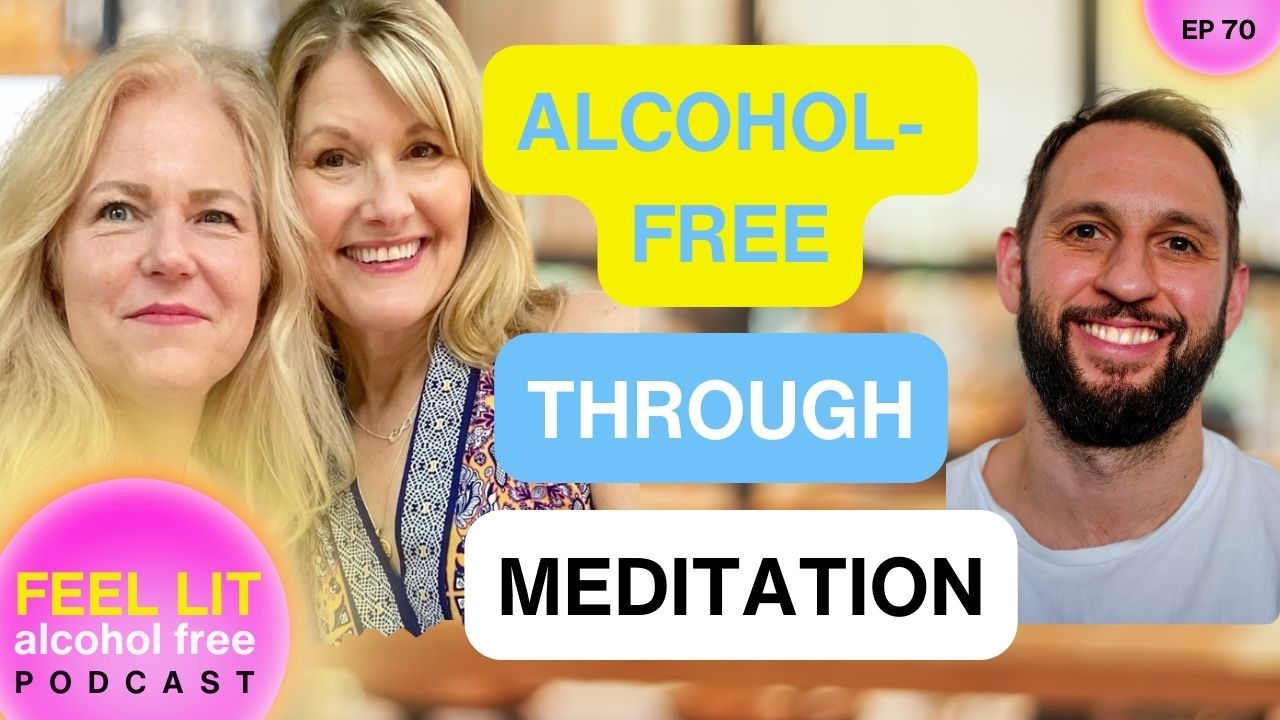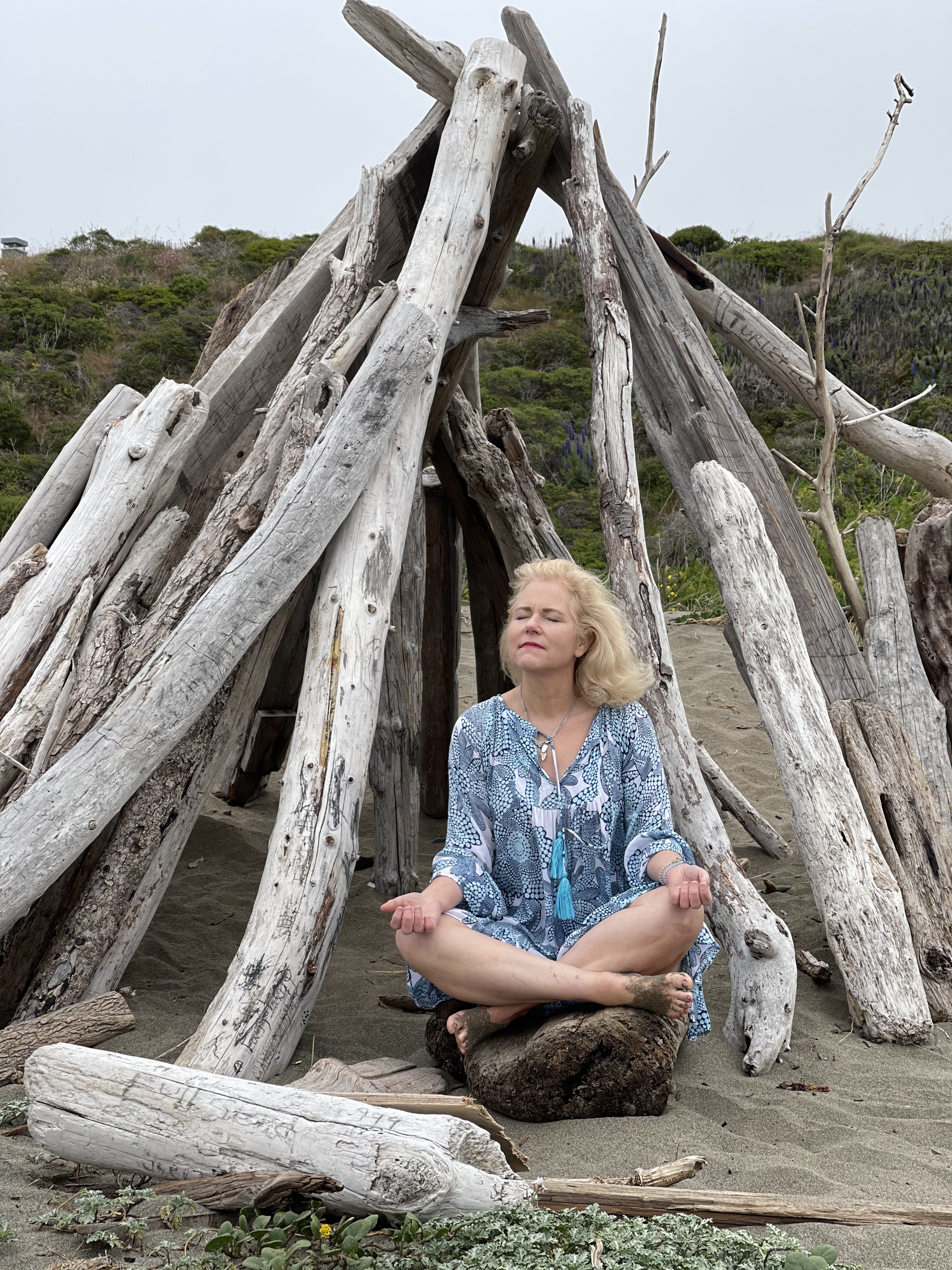Ep. 70 How Meditation Paved the Way for Rory Kinsella’s Sober Journey
May 13, 2025
Listen to the PODCAST Here
Watch the Podcast on YouTube Here
Breaking Free: How Meditation Supports an Alcohol-Free Life
Introduction: The Cycle of Stress and Drinking
For many, alcohol becomes woven into the fabric of social life, stress relief, and even creativity. But while the first glass may seem like an easy escape from daily pressures, over time, drinking can form a cycle that's hard to break—leading to hangovers, guilt, or simply a sense that life could be healthier or more in control.
In a recent episode of the “Feel Lit Alcohol Free” podcast, hosts Ruby Williams and Susan Larkin sat down with Rory Kinsella, a Vedic meditation teacher and sober coach, to explore how meditation—not willpower—can transform your relationship with alcohol.
From Hard Drinking Musician to Sober Coach
Rory’s story is one that many can relate to. As a young musician in the UK, alcohol was part of the job and the culture—nights out were fueled by expectations, creativity myths, and the hope of being a true “rock star.” Moving to Australia, his habits continued until hitting a milestone birthday led him to question his future. “Did I really want to be the 50-year-old still DJing in nightclubs, hungover most weekends?” he wondered.
Rather than quitting alcohol immediately, Rory began by changing other parts of his life: he got into running, gave up smoking, and experimented with new outlets for stress and identity. This led him to meditation—a practice he’d previously misunderstood and dismissed as “not for busy minds like mine.”
Demystifying Meditation: Not About Stopping Your Thoughts
Many people try meditation and quickly give up, believing that a “clear mind” is required. Rory points out that this is a misconception—one that prevented him from benefiting for years. Instead, he learned through Vedic meditation that it’s not about controlling or silencing the mind. The key is to find a comfortable way to give the restless “monkey mind” a place to rest.
In Vedic meditation, this is achieved with the use of a mantra—a word or sound repeated silently—which soothes the mind in the same way a lullaby calms a child. No special postures or forced concentration are needed. The goal is to reach a state of contentedness, making meditation accessible even to people who think they “can’t do it right.”
Meditation as a Healthier Coping Mechanism
Crucially, Rory started meditating while still drinking. “Almost immediately, I found I didn’t need the midweek drinks—those ones I never enjoyed anyway. Meditation became my new way to cope with stress and unwind at the end of the day,” he explains. By inserting meditation at the points in his routine when he would normally reach for a drink, his cravings began to fade.
Over time, social and celebratory drinking followed suit, especially as he found new meaning in life—and became a role model for students looking for a relatable, approachable teacher.
Practical Steps: Making Meditation Work for You
What sets Rory apart is his practical approach. Rather than insisting on immediate sobriety, he encourages clients to simply commit to a meditation practice and observe the changes. By meditating in the morning and especially during "witching hour" (the late afternoon/early evening when cravings typically peak), people reinforce their natural sense of contentment and resilience—making it much easier not to drink.
He emphasizes the value of learning from a live teacher and in a community: real-time feedback helps break the belief that busy minds can’t meditate and dispels the myth that you’re “doing it wrong.” Community and shared stories add inspiration and accountability.
Finding Your Inner Wise Monkey
The essence of Rory’s Wise Monkey Way is all about adaptation energy—the inner resource we draw on to manage life’s stresses. Whether it’s through running, music, or meditation, the goal is to replace unhealthy coping mechanisms with ones that make us genuinely happier and more resilient.
If you’re struggling with the push-pull of wanting to drink less but feeling overwhelmed, consider meditation—not as an extra “should” on your to-do list, but as a gift to yourself. The journey to feeling lit, healthy, and free can start with just a few quiet minutes each day.
Ready to begin?
Look for a meditation style or teacher that resonates with you, and remember: Break free at your own pace—the path is yours to choose.
Listeners have said that our podcast has helped them get alcohol free! So we created Feel Lit 21, a way for you to press your reset button and take a 21 day break from alcohol. Every day you will receive emails with videos, journal prompts, and the inspiration you need to embrace 21 days without alcohol that feels lit!
Join Feel Lit 21: https://feellitpodcast.com/FeelLit21-sg
Grab your copy of our FREE WineFree Weekend Guide to help you on your alcohol free journey. https://feellitpodcast.com/Guide
Find community and connection on the Feel Lit Alcohol Free Facebook Page: https://www.facebook.com/groups/feellitalcoholfreepodcast
Ruby Williams at Freedom Renegade Coaching https://www.freedomrenegadecoaching.com/
Follow Coach Ruby: @rubywilliamscoaching
Email: [email protected]
